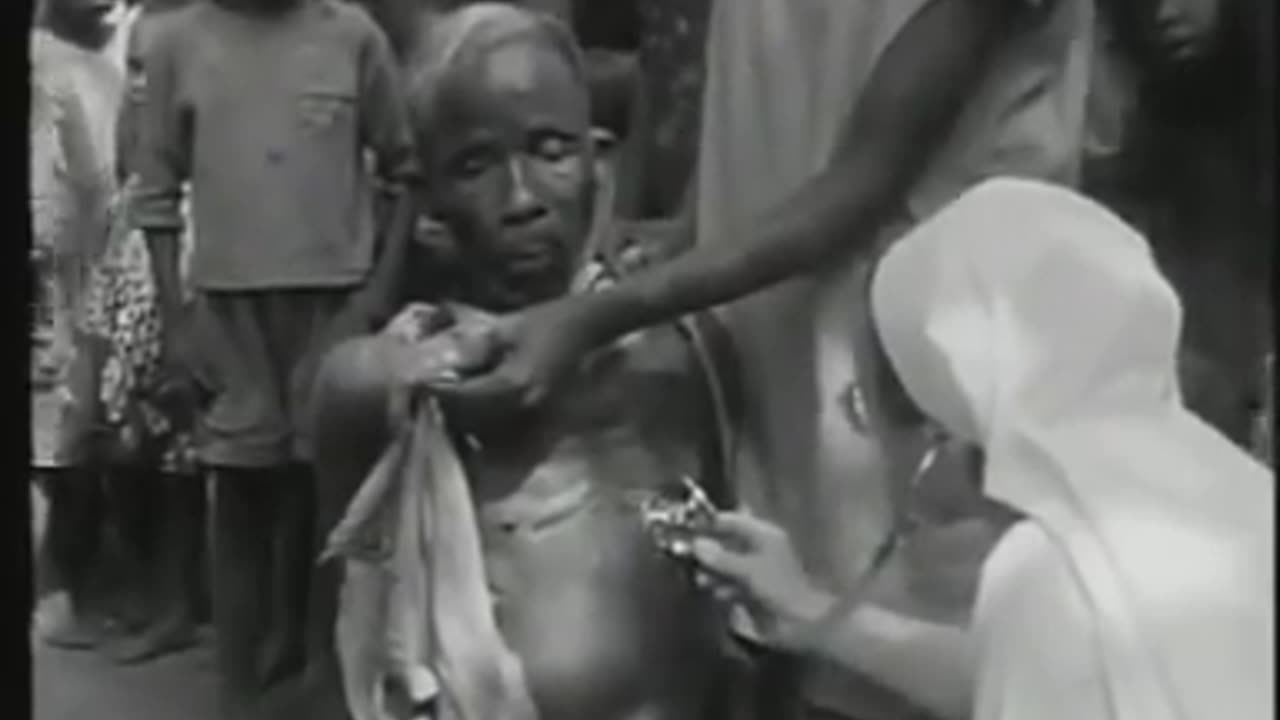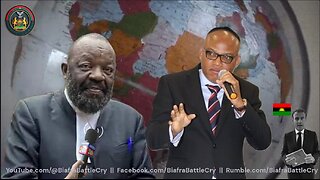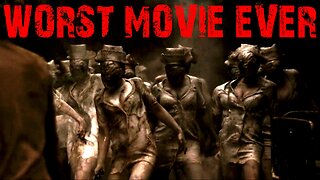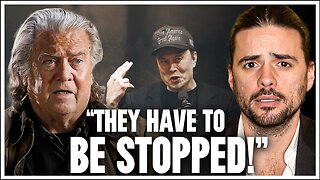Premium Only Content

Catholic Irish Relief Food Blockage During Biafra War
Biafra, officially the Republic of Biafra,[4] was a partially recognised secessionist state in West Africa[5][6] that declared independence from Nigeria and existed from 1967 until 1970.[7] Its territory consisted of the predominantly Igbo-populated Eastern Region of Nigeria.[1] Biafra was established on 30 May 1967 by Igbo military officer and Eastern Region governor C. Odumegwu Ojukwu under his presidency, following a series of ethnic tensions and military coups after Nigerian independence in 1960 that culminated in the 1966 massacres of Igbo people and other ethnic groups living in northern Nigeria.[8] The military of Nigeria proceeded to invade Biafra shortly after its secession, resulting in the start of the Nigerian Civil War.
Biafra was formally recognised by Gabon, Haiti, Ivory Coast, Tanzania, and Zambia.[9] Other nations, which did not officially recognise Biafra, but granted de facto recognition to Biafra in the form of diplomatic support or military aid, included France, Spain, Portugal, Norway, Israel, Rhodesia, South Africa, and Vatican City.[a] Biafra received aid from non-state actors, including Joint Church Aid, foreign mercenaries, Holy Ghost Fathers of Ireland,[10] and under their direction Caritas Internationalis,[11] and U.S. Catholic Relief Services.[12] Médecins Sans Frontières also originated in response to the suffering.
Although the government of the United States under the presidency of Lyndon B. Johnson maintained an official neutral stance during the war, there was strong public support for Biafra in the United States.[13] The American Committee to Keep Biafra Alive was founded by American activists to spread pro-Biafran propaganda.[14] U.S. president Richard Nixon was sympathetic to Biafra. Before he won the 1968 election, he accused Nigeria of committing a genocide against Biafrans and called for the United States to intervene in the war to support Biafra. However, he was ultimately unsuccessful in his efforts to aid Biafra due to the demands of the Vietnam War.[15] After two-and-a-half years of war, during which almost two million Biafran civilians (three-quarters of them small children) died from starvation caused by the total blockade of the region by the Nigerian government,[16][17] Biafran forces under Nigeria's motto of "No-victor, No-vanquished" surrendered to the Nigerian Federal Military Government (FMG). The surrender was facilitated by the Biafran Vice President and Chief of General Staff, Major General Philip Effiong, who assumed leadership of the Republic of Biafra after the original President, Colonel Chukwuemeka Odumegwu Ojukwu, fled to Ivory Coast.[18] After the surrender of Biafrans, some Igbos who had fled the conflict returned to their properties but were unable to claim them back from new occupants. This became law in the Abandoned Properties Act (28 September 1979).[19] It was purported that at the start of the civil war, Igbos withdrew their funds from Nigerian banks and converted it to the Biafran currency. After the war, bank accounts owned by Biafrans were seized and a Nigerian panel resolved to give every Igbo person an account with only 20 pounds.[20] Federal projects in Biafra were also greatly reduced compared to other parts of Nigeria.[21] In an Intersociety study it was found that Nigerian security forces also extorted approximately $100 million per year from illegal roadblocks and other methods from Igboland – a cultural sub-region of Biafra in what is now southern Nigeria, causing the Igbo citizenry to trust the Nigerian security forces even less than before.[22]
Igbo nationalism emerged immediately after the end of the civil war and it became more militant since the 1990s, calling for the revival of Biafra.[23] Various Biafran secessionist groups have emerged such as the Indigenous People of Biafra, the Movement for the Actualization of the Sovereign State of Biafra, and the Biafra Zionist Front.
-
 25:50
25:50
Biafra Battle Cry
1 day agoNNAMDI KANU: Aloy Ejimakor, Debunks Distortions at Court Appearance on 10th February 2025
561 -
 1:04:55
1:04:55
Bare Knuckle Fighting Championship
4 days agoBKFC ITALY PRESS CONFERENCE | LIVE!
75.6K7 -
 10:04
10:04
Space Ice
6 hours agoThe Movie Silent Hill Is Like Resident Evil Without The Good Parts - Worst Movie Ever
43.8K12 -
 5:49
5:49
Hannah Barron
1 day agoRedneck Euro Mount
35.3K22 -
 32:34
32:34
hickok45
11 hours agoSunday Shoot-a-Round # 268
27.3K16 -
 27:33
27:33
The Finance Hub
21 hours ago $15.53 earnedBREAKING: ALINA HABBA JUST DROPPED A MASSIVE BOMBSHELL!!!
64.4K113 -
 40:23
40:23
PMG
1 day ago $2.00 earnedHannah Faulkner and Dr. Michael Schwartz | EXPOSING BIG PHARMA
37.8K3 -
 18:55
18:55
GBGunsRumble
23 hours agoGBGuns Range Report & Channel Update 15FEB25
27.7K2 -
 13:31:32
13:31:32
iViperKing
1 day agoGood Times + Good Energy Ft. Whez.. #VKGFAM #RRR
112K15 -
 12:24
12:24
Winston Marshall
2 days agoWOAH! Bannon just Revealed THIS About MUSK - The Tech-Right vs MAGA Right Civil War Ramps Up
237K319